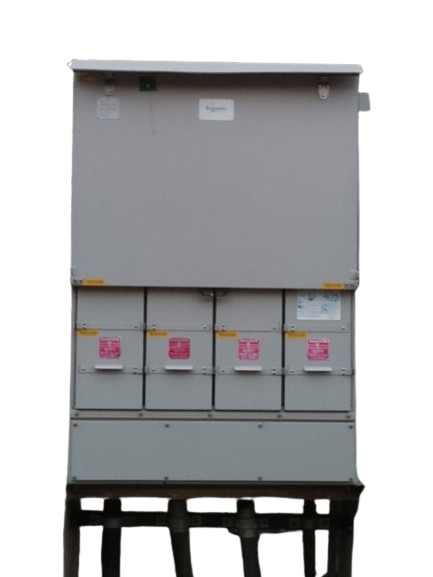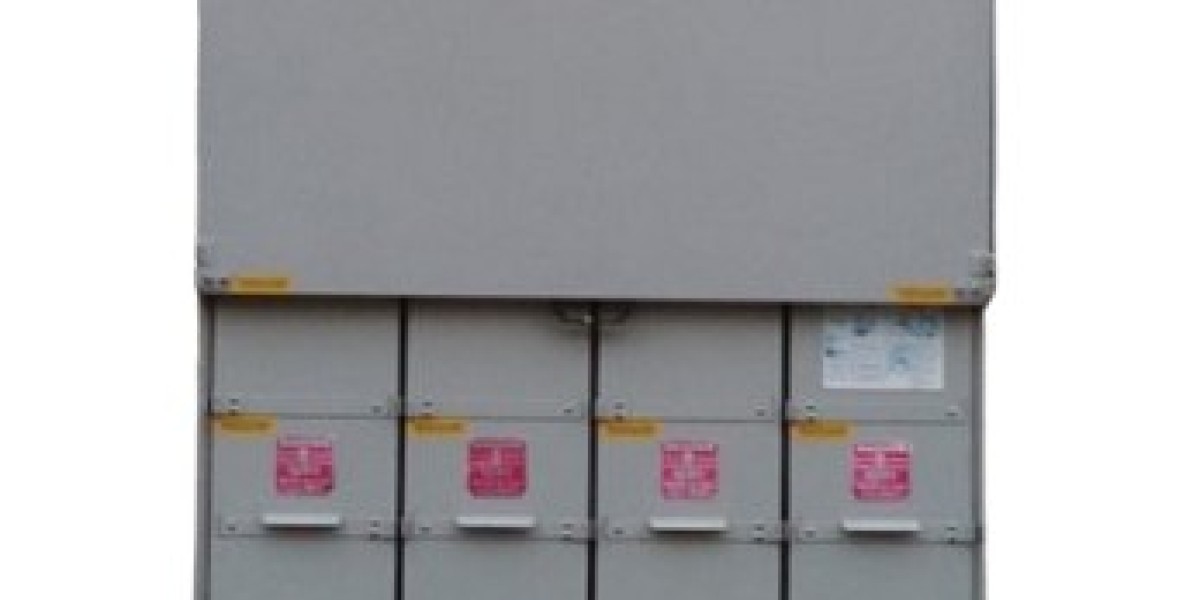
In the rapidly advancing world of electrical distribution systems, maintaining a reliable and efficient power supply is critical. Ring Main Units (RMU) play an essential role in ensuring the robustness and resilience of electrical networks, particularly in urban and industrial environments. As we delve into the significance of Ring Main Units (RMUs), their applications, and benefits, it becomes clear that these devices are indispensable for modern electrical infrastructure. Western Control Automation Pvt. Ltd. is a key player in providing innovative RMU solutions, contributing to the evolution and efficiency of electrical distribution systems worldwide.
What is a Ring Main Unit (RMU)?
A Ring Main Unit (RMU) is a compact, switchgear system designed to control, protect, and isolate electrical circuits in medium-voltage networks. RMUs are commonly found in the secondary distribution systems of electrical grids, typically operating at voltage levels between 3.3kV and 36kV. These units ensure continuity of power by facilitating the reconfiguration of circuits, especially in the event of faults.
The key feature of an RMU is its ability to create a looped or ring configuration, which is crucial for improving system reliability. By allowing electricity to flow from multiple directions, an RMU ensures that power continues to flow even if one part of the network experiences an issue. This redundancy minimizes outages and improves the overall resilience of the power grid.
Why are Ring Main Units (RMUs) Important?
In today's complex and dynamic power networks, uninterrupted power supply is of utmost importance. The growing demand for energy, coupled with the increasing integration of renewable energy sources, has made the role of Ring Main Units (RMU) more crucial than ever. Here's why RMUs are vital for modern electrical distribution systems:
1. Enhanced Reliability: One of the primary advantages of Ring Main Units (RMUs) is the improved reliability of the electrical network. Their ring configuration allows for alternative routes for electricity to flow. In case of a fault or a maintenance event on one side of the network, the RMU can easily isolate the affected section while ensuring that power continues to flow through the rest of the system.
2. Efficient Fault Detection and Isolation: RMUs are equipped with automatic circuit breakers and other fault detection mechanisms that help identify issues quickly. This ensures minimal downtime by enabling fast isolation of the faulty section, allowing the rest of the network to function normally. The speed of fault detection and isolation is crucial in preventing cascading failures and minimizing service interruptions.
3. Compact and Space-Efficient Design: Ring Main Units (RMUs) are designed to be compact and easy to integrate into existing networks. Their compact design makes them perfect for urban areas where space is constrain. Furthermore, modern RMUs are often gas-insulated, providing added protection from environmental factors like moisture and dust.
4. Improved Safety: With their built-in protection mechanisms, RMUs help enhance the safety of electrical distribution systems. Faults and short circuits can lead to dangerous situations such as fires or equipment damage. By isolating the faulty sections of the network quickly, RMUs reduce the risk of these safety hazards.
Applications of Ring Main Units (RMUs)
Ring Main Units (RMUs) find applications in a variety of settings, including urban, industrial, and commercial environments. They are essential in the following areas:
1. Urban Distribution Networks: In densely populated areas, such as cities and metropolitan regions, the demand for a stable and reliable power supply is high. RMUs are commonly used in underground networks to distribute power efficiently and reduce the likelihood of outages. Their ability to reroute power in the event of a fault makes them ideal for areas with complex networks.
2. Industrial and Commercial Facilities: Large factories, manufacturing plants, and commercial buildings also benefit from RMUs. These facilities require constant power to operate machinery and equipment. RMUs ensure that any interruptions in power are quickly identified and isolated, keeping operations running smoothly.
3. Renewable Energy Integration: With the increasing reliance on renewable energy sources like solar and wind, Ring Main Units (RMUs) are becoming increasingly important in facilitating the integration of decentralized power generation into the grid. By using RMUs, grid operators can better manage the variability and intermittency of renewable energy sources while ensuring grid stability.
4. Utility Substations: RMUs are commonly used in utility substations as part of the medium-voltage network. They help in managing the flow of electricity from the substation to the end users, ensuring that any problems in the distribution network are quickly addressed and isolated.
Benefits of Ring Main Units (RMUs)
The advantages of Ring Main Units (RMUs) extend beyond just improving reliability. Here are some key benefits:
1. Cost-Effective: RMUs are a cost-effective solution for modernizing electrical distribution systems. Their modular design means that they can be customized to fit different network configurations, allowing for a more efficient distribution system. They reduce the need for extensive infrastructure changes, saving costs in both installation and maintenance.
2. Scalability: RMUs are highly scalable and can be easily expanded to meet growing demand. Whether adding more consumers to a network or integrating additional renewable energy sources, RMUs offer the flexibility to adapt as required.
3. Remote Management and Supervision: A number of contemporary Ring Main Units (RMUs) are equipped with sophisticated monitoring and control features, enabling operators to oversee and manage the unit's functionality from a distance.This capability is particularly valuable in reducing maintenance costs and improving system uptime by enabling proactive fault detection and response.
4. Environmental Benefits: RMUs, especially those with gas-insulated designs, provide an environmentally friendly solution by using minimal space and reducing the need for excessive cables and external infrastructure.
Conclusion
Ring Main Units (RMUs) are indispensable components of modern electrical distribution systems. Their role in enhancing reliability, fault detection, and isolation cannot be overstated. By enabling faster recovery from faults and improving the overall safety of the electrical network, RMUs are a critical part of the infrastructure that supports our daily lives. Whether used in urban grids, industrial facilities, or renewable energy integration, the versatility and efficiency of Ring Main Units (RMUs) continue to drive the evolution of power distribution networks, making them an essential investment for future-proofing our electrical systems.



